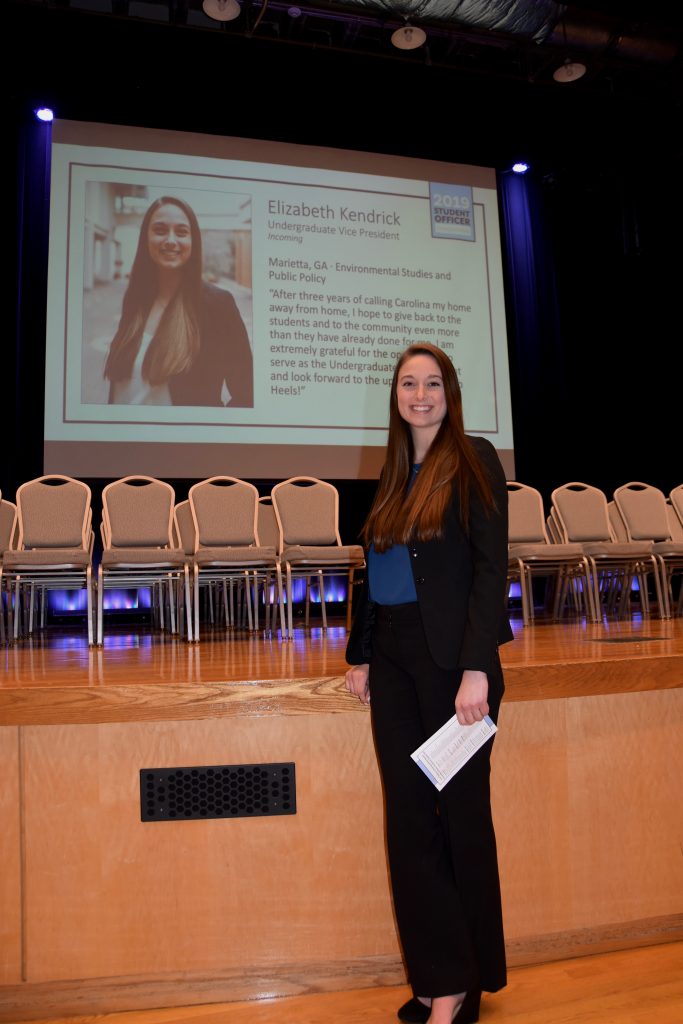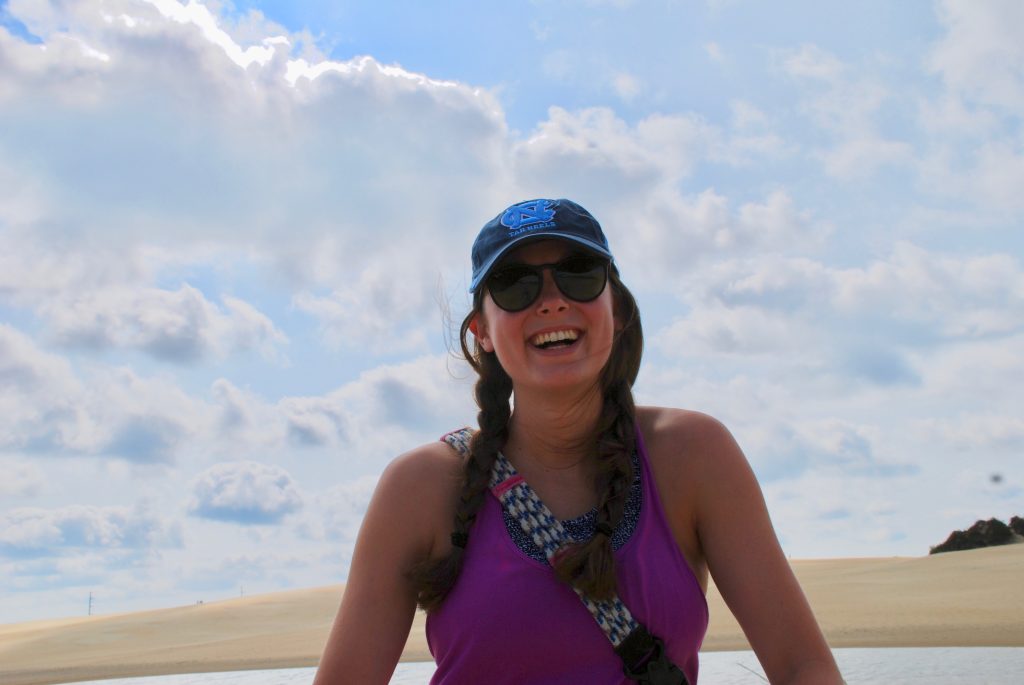Student body vice president Elizabeth Kendrick discusses her OBX field site experience
November 3, 2019
The Carolina community has long been comprised of a diverse body of bright, driven thinkers whose rich blend of academic and social interests lay the foundation of their professional aspirations. With access to a vast selection of resources designed to fuel one’s personal drive and curiosity, students here at UNC often find themselves balancing a wide variety of interests that take the form of internships, student organizations, and unique major-minor combinations.
Such is the case for senior and student body vice president, Elizabeth Kendrick. Majoring in environmental studies and public policy with a minor in politics, philosophy and economics, Kendrick has managed to combine her love for policy-making and social service with her lifelong affinity for environmental protection.
In fall 2018, Kendrick studied at the Outer Banks Field Site (OBXFS), a research facility coordinated through a partnership with UNC Institute for the Environment (IE), UNC’s Environment, Ecology and Energy Program (E3P), the Coastal Studies Institute at the ECU Outer Banks Campus and the UNC Study Abroad Office. Exploring the intersection between coastal ecosystem restoration and environmental decision-making, OBXFS fit perfectly with Kendrick’s unique academic interests—including a desire to broaden her experience with marine and coastal work—and reaffirmed her intention of pursuing a career in environmental law.
“Being a part of the Institute for the Environment has been an unbelievable experience. I have been able to take my passion for the environment and turn it into different internships, jobs, and an education that I am so proud to say I have,” says Kendrick.
Kendrick’s capstone project at OBXFS centered around the effects of climate change on water quality in Nags Head, NC, particularly with regards to how rising groundwater tables due to sea level rise can interact with septic tanks and potentially lead to groundwater contamination. Focusing her research on the human-dimensions component of the capstone, Kendrick devoted much of her time interviewing residents about their septic systems and listening to their personal stories about living on the barrier islands.
“To be able to listen to the locals and hear their stories about hurricanes, flooding, and environmental changes …I think that was a really memorable experience,” says Kendrick.
In addition to the coursework and capstone, Kendrick worked as an intern at the district attorney’s office while at OBXFS, an experience which closely aligns with her career aspirations in environmental law.
“My mentor, Jennifer, who is an assistant district attorney, was absolutely incredible. She taught me so much,” she explains. “I was able to sit in the courtroom with her, meet with clients, and really work hands-on with the cases.”
When not in the classroom, out in the field, or working at the DA’s office, Kendrick and the rest of her group had many opportunities to unwind and get to know one another. During the first week of the trip, for instance, the students were treated to ropes courses, plenty of fishing, and a scavenger hunt to explore the different regions of the Outer Banks.
“Elizabeth was an ideal fit for the OBXFS, and we are thrilled that she participated in the program last year,” says Lindsay Dubbs, research assistant professor and co-director of OBXFS. “Her drive and passion for learning made her stand out to the faculty and community members alike.”
Having never participated in student government in high school, Kendrick made her debut during her sophomore year at UNC when she joined the Academic Affairs Committee. While on this staff, Kendrick frequently met with administrators to discuss and finalize the new curriculum that will be implemented for incoming class of first-year students.
“Being able to represent and speak on behalf of the student body made me feel as though I was really making a difference on UNC’s campus. After one year, I was hooked, and wanted to continue making change and meeting new people.” says Kendrick.
After serving as an executive assistant to last year’s student body vice president, Emily Blackburn, Kendrick was eager to apply for her friend’s former position and to continue to work with student and staff at UNC and explore the different ways in which to benefit the community. As an environmental student, Kendrick also hopes to coordinate eco-friendly projects with fellow student government members at the Environmental Affairs Committee as well as with student-led environmental organizations on campus.
“It is really surreal to me that I am able to meet with so many students and administrators on campus. Every day I am able to see and hear about all of the meaningful change students and administrators are trying to do for our university.” says Kendrick. “That’s something that’s been really heartwarming to me.”
Kendrick is looking to continue her academic career through law school after graduating from UNC next spring. She describes Washington, D.C., as her dream location, both for law school and for her career; she hopes to eventually work at the Environmental Protection Agency (EPA), among other environmental organizations in the area. As she makes her next steps toward a career in environmental law, Kendrick hopes to remain openminded while still maintaining her passion for the planet.
“I am going to law school openminded, keeping my environmental passion and environmental interests at my roots,” she explains. “As long as I am in a career where I feel as though I am leaving the planet in a better place than I came into it, I’ll be extremely happy.”
Story by Dylan Morgan ’22
Dylan Morgan is an environmental science major at UNC and is part of the graduating class of 2022. This summer, he is working as a communications intern at the UNC Institute for the Environment. Morgan’s career aspirations combine environmental research with journalistic storytelling, particularly in the fields of ecological restoration and natural resource conservation.

